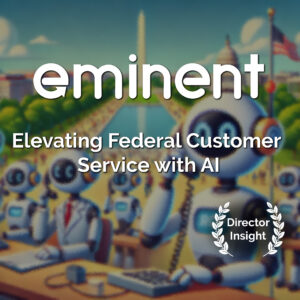In this consistently-evolving age, where even high-profile companies are susceptible to cyber-attacks and hackers, protecting your customers’ data is highly essential. OPM’s data breach has already taught us that data transparency and security are highly crucial for any organization. As a reliable business owner, you really need to follow some significant processes to safeguard confidential data and foster trust with your customers.
Here are some of the vital procedures your organization can consider to ensure your customers’ data isn’t compromised.
Identify Critical Data
Before implementing any new strategies or security measures, you need to identify all the sensitive data you collect or have on file. With this approach, you will be able to categorize what data requires most protection and how to utilize data loss prevention (DLP) software to protect any critical information. Also, it is vital to find out where you store this data— whether it’s electronically or in a physical system. You need to have a comprehensive knowledge of everything you have access to and where it resides.
Monitor Traffic on all Networks
It is highly essential to closely monitor traffic on all the networks you use. The process will help you discover, map, and track what is deployed across your entire business infrastructure— providing a picture of your system in real-time. Network security monitoring does not only help you detect threats originating from outside the network but also help you identify threats originating from within. As per the Report – “Grand Theft Data” published by Intel Security, 43% of all security breaches are attributable to internal participants. However, half of the internal data violations are unintentional. A reliable network security monitoring can prevent several thefts while identifying unusual or suspicious file share access.
Encrypt User Data
Several industries like finance, accommodation, and healthcare still face the challenge of securing data and preventing data loss as their employees use removable media, external devices, and web applications as a part of their business procedures. Encryption technology is known as one of the safest ways to protect sensitive information. With a reliable encryption technology, organizations can effectively secure customers’ data. It’s also advisable to encrypt your email if you’re sending/receiving confidential data. Always use reliable data loss prevention software, which provides data encryption with email, device, and application control while assuring that your data is highly protected.
Company Policies for Handling Sensitive Data
Your organization needs to accurately segregate sensitive and non-sensitive information to come up with a strict process for handling crucial data. Always set a policy of least privilege restricts each user’s data access to the absolute minimum they need to perform their job function.
Corporate data can be segmented into public, private, and restricted to consider security measures accordingly. While public data needs minimum security, private information needs to be shared cautiously, whereas restricted data needs to be shared with limited employees only. Having control over accessibility ensures who can locate it and decreases the chances of data breaches.
Providing Awareness Training to Employees
Your employees must be educated on best practices while dealing with confidential customer data. They must also understand what actions to take to ensure that sensitive data does not slip into the wrong hands. Providing awareness training helps employees avoid making basic mistakes that lead to data leaks. Train your staff about the data protection policies of your organization and the legal procedures of the industry. This can help employees identify phishing attempts and other strategies that hackers may try to use to steal your data.
Using the Email Protection System
Hackers can exploit your emails to get confidential information or disrupt IT access to resources. Ransomware, phishing, spoofing, and key loggers are some of the common email threats used by attackers. Whether you use Gmail, Microsoft Outlook, or Mozilla Thunderbird, you must use a reliable email antivirus that will secure your confidential data from phishing emails, viruses, malware, Trojans, and other types of email threats. Email Protection Tools can help you prevent data leaks by scanning email attachments for malware.
Using Protections on All Network Endpoints
Installing cybersecurity protections on all network endpoints can also prevent data leaks. Endpoint security has evolved from providing traditional antivirus software to complete protection from malware and other online threats. Endpoint security also involves the process of securing endpoints of end-user devices such as desktops, laptops, and mobile phones from being exploited by malicious software and campaigns.
By following all these tips mentioned above, you will be able to build a long-term relationship with your customers and effectively protect their confidential data. Make sure to keep yourself updated with the latest technologies and security updates.



